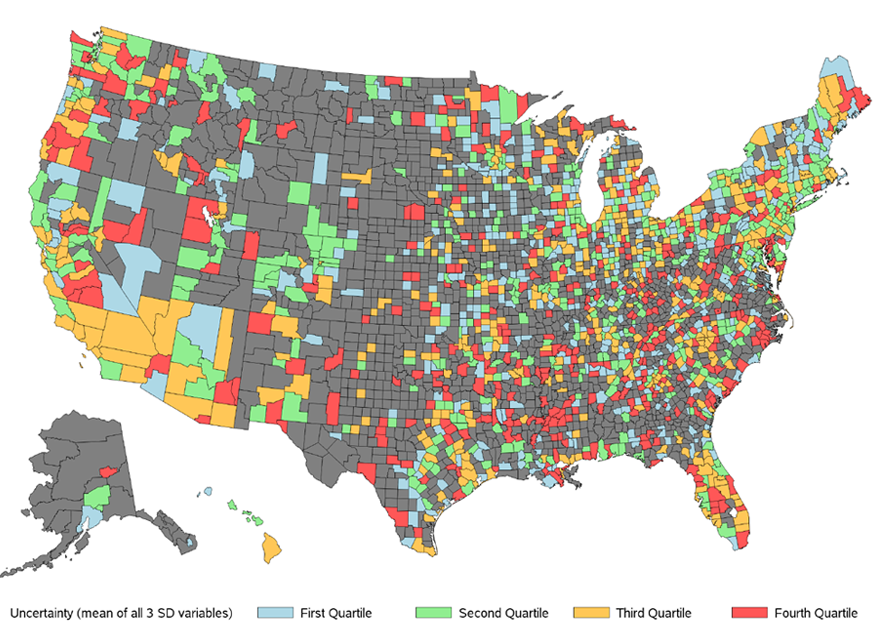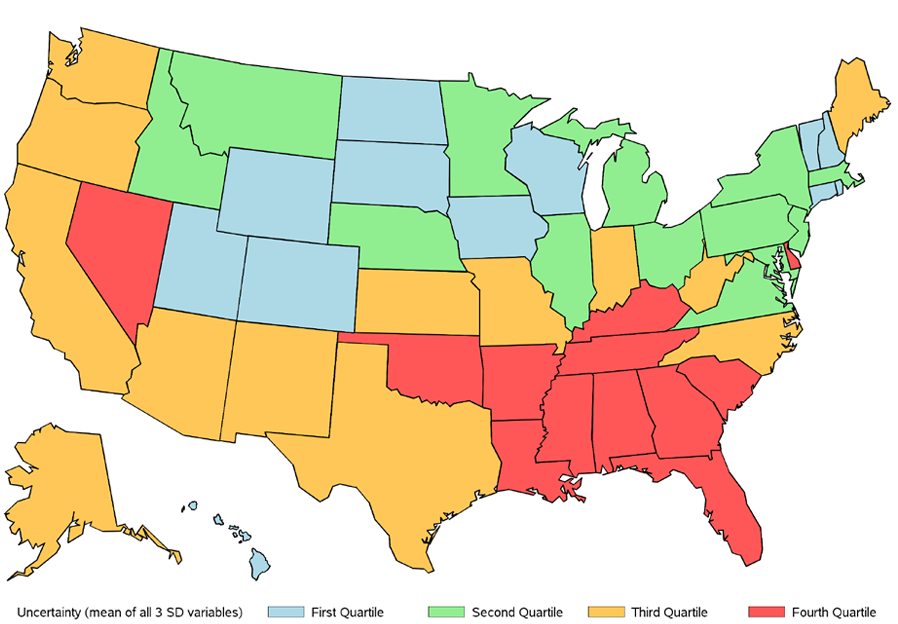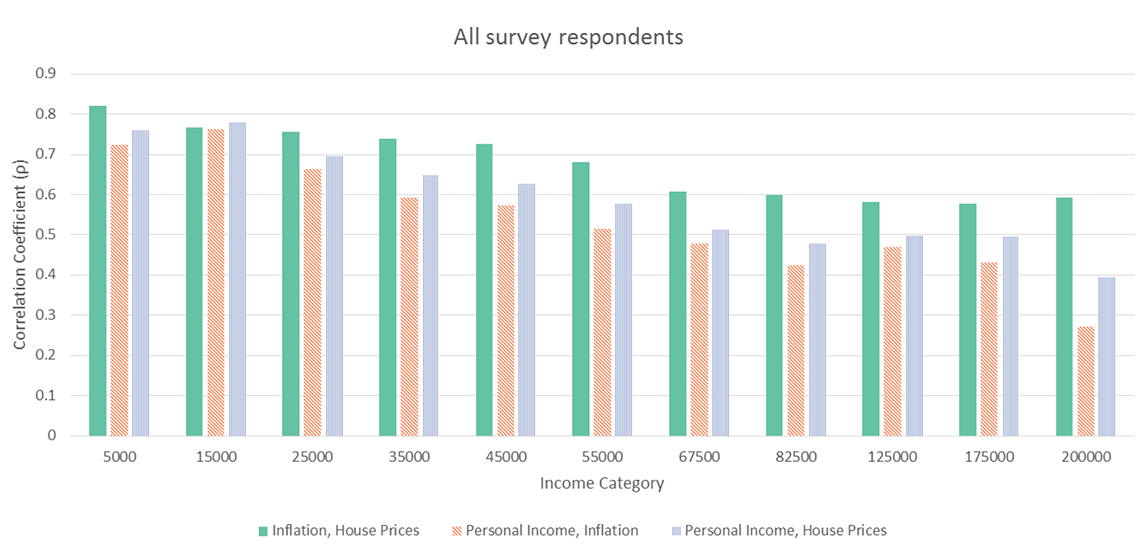How Will the COVID-19 Pandemic Affect Personal Economic Decisions?
Executive Summary
- People facing more economic adversity tend to see their own finances and the economy as a whole as more uncertain.
- Regardless of household wealth, education or income, people are more precautionary with economic decisions if they feel more uncertain about the future.
- People who are most directly affected by the COVID-19 pandemic will likely have the greatest uncertainty around economic expectations and be more reluctant to invest in the stock market going forward.
How does uncertainty affect economic decisions?
The mounting health and economic toll of the COVID-19 pandemic raises many questions about how this unprecedented event will affect the U.S. economy. Behavioral economic research may hold some answers.
Studies have shown that people’s expectations—such as whether they expect to stay employed or whether they expect the stock market to rise or fall—strongly influence household economic decisions. When people feel their job is at risk, for example, they tend to save more, spend less and avoid risky investments.
However, households vary greatly in terms of both their economic expectations and the uncertainty surrounding these expectations. Historically, a lack of data has made it difficult to understand exactly how and why households differ in these respects. Recent work by researchers at the Kenan Institute of Private Enterprise offers new insights.
The researchers examined data from the Survey of Consumer Expectations, a monthly survey of U.S. households administered by the New York Federal Reserve Bank. Through questions about the overall economy and respondents’ personal economic situation, the survey captures people’s views about the economy and uncertainty. The researchers analyzed data from an average of about 1,200 responses per month from 2013 to 2017.
The analysis revealed substantial variation in how people view the economy as a whole and their own economic situation. Households with a lower level of education, lower income, more precarious finances and those in counties with higher unemployment tended to express more uncertainty when asked to speculate about future inflation rates, housing prices and personal income.
“Households faced with more adversity see a great deal more uncertainty in terms of where the American economy might go,” says study co-author Camelia M. Kuhnen. “We think this indicates that instability in their personal lives or local communities colors the way they see the economic opportunities of the country.”
Better-educated and higher-earning individuals tended to express more certainty about economic outcomes. Their predictions also aligned more closely with those of experts. However, even among those with more wealth, education and income, people who expressed greater uncertainty about the future behaved in a more precautionary way, for example by planning to reduce consumption, secure additional credit lines or invest less in the stock market.
It’s valuable to understand these perceptions—and how they differ across households—because they likely affect how people will respond to policy changes meant to influence behaviors such as consumption, investment and credit decisions.
How do these findings apply to the COVID-19 pandemic?
Based on these findings, Kuhnen predicts two primary effects from COVID-19: a greater sense of uncertainty about future economic conditions, and a greater sense of pessimism about the gains that can be made by investing in the stock market. This will likely translate into a reluctance to buy stocks and may lead many people to underestimate the economy’s capacity to rebound.
“This pessimism about stock returns and the view that these returns will be extraordinarily volatile from now on will lead households to avoid investing in the U.S. stock market,” says Kuhnen. “But by avoiding this investment, these households will miss out on the recovery in the market and will miss the opportunity to own a bit of the American economy—which will keep growing in the long run.”
She adds that the people most directly affected by the virus—by losing a job, losing money in the stock market downturn or seeing friends or relatives get sick, for example—will likely be the most fearful and pessimistic.
“The longer the virus haunts us, the harder it will be for people who were most affected by it to get past their fears and understand this was a very rare event, and that going forward we will see economic growth and prosperity,” says Kuhnen.
What’s the best road forward?
Government action will be crucial to improving people’s economic perceptions and realities during the COVID-19 pandemic and beyond. The Federal Reserve Bank has responded with changes in monetary policy and steps to protect the financial system, which ultimately protects consumers. However, Kuhnen points out that there is only so much the Federal Reserve can do.
People who have lost jobs because of the virus are among the most economically vulnerable, and Kuhnen believes there is much more that the U.S. Treasury and other government agencies can do to shore up their economic outlook. In addition, she stresses the urgent need to reduce the duration and impact of the virus threat itself.
“It is important that the U.S. government spend all the money necessary to ensure the medical system is supported, there is adequate testing for COVID-19 and that treatments being researched can reach the public as quickly as possible,” says Kuhnen. “The public must have confidence in the government’s ability to control this situation. If there is confidence, economic growth will come much sooner.”
Correlation in uncertainty across domains, by income
Geographic heterogeneity in uncertainty (by county and state)




